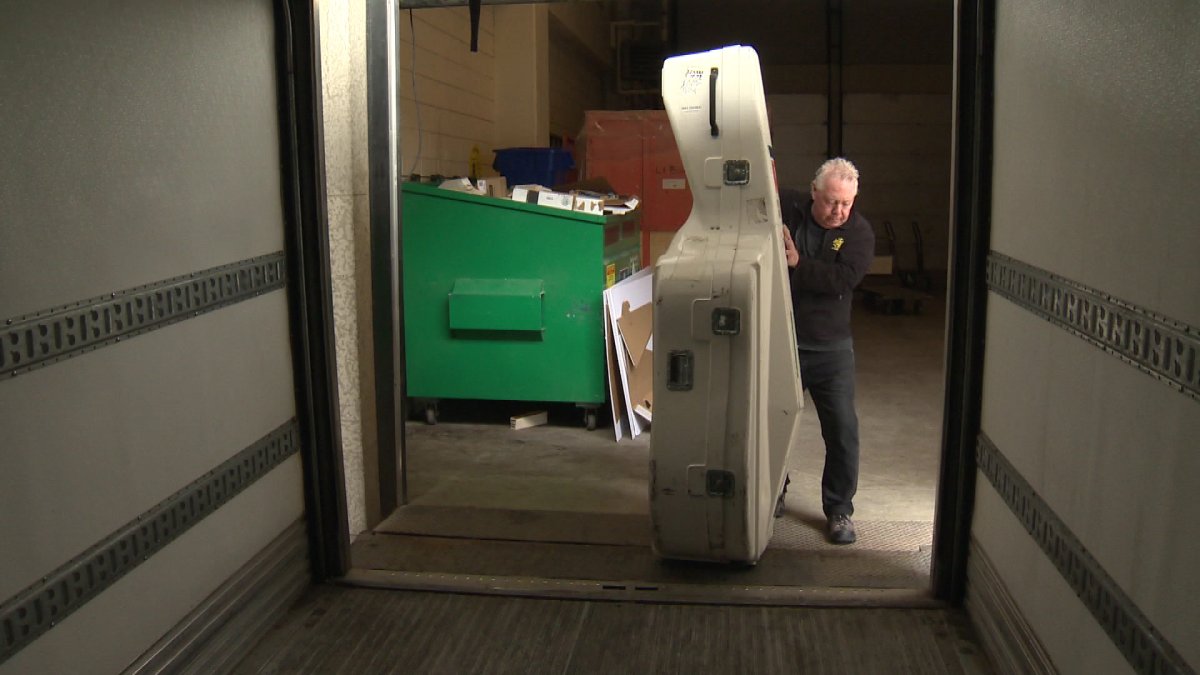The dark basement of Winnipeg’s Centennial Concert Hall is a place where no spectator is ever allowed to go. But it’s where so many of the symphony’s key ingredients are stored.

Hundreds of pieces of equipment like music stands and lights, as well as bass drums, tympanis, cymbals, and odds and ends.
“I go all over the building. I go down to the basement and I have a certain amount of stuff in the basement,” said Winnipeg Symphony Orchestra stage supervisor, Lawrence Rentz. “I’ve got stuff stored in the men’s dressing room on the second floor.”
Rentz has been with the WSO for 34 years and not only helps move the equipment on-and-off stage, but travels with it on the road.
The truck that carries the bigger pieces is climate controlled with the temperature always set in the low twenties.
“The temperature control system is for the harps and bassists, so the strings don’t tighten up, so the varnish doesn’t crack on the harps,” said Rentz.
Next month the WSO will perform on one of the world’s grandest stages, Carnegie Hall. But its “roadies” have been packing and preparing for the trip to New York City for months.
All of the equipment, and many of the bigger instruments, will have to make the long trek by truck.
“If they’re larger than a trombone, that equipment doesn’t go on the plane. Mainly because you have to check it underneath. And that’s not going to happen,” said WSO production manager, Andrea de Haan.
Some of the instruments are worth tens of thousands of dollars and unless the bigger ones have their own seat, they’re not allowed on board.
“We have a 54 foot truck. We thought at the beginning that was excessive, but it will be full,” said de Haan.
Of equipment and paperwork, including special documents for instruments made with Brazilian Rosewood or Ivory.
“Most rosewood is Honduran rosewood which is okay, but Brazilian rosewood is not because it’s an endangered material,” said de Haan.
“Ivory is a banned substance,” said Wilson. “Same thing with rosewood and these are often very tiny parts that go into instruments. It’s been on the official ban list since 1976 however over the last two months, Obama made a speech which now they’re going to crack down on them. These instruments, some of them are hundreds of years old and we don’t have proper information on them really and there is some ivory that is okay and some that is not. But when it’s an instrument that’s been around for a long time, it’s hard to know what the source is.”
To prevent any problems at the border, the production manager has been filling out dozens of forms.
The May 8th performance is WSO’s second trip to New York City and it doesn’t want to leave a single piece of equipment behind.
“I’ll relax on May 11, when it’s all over,” said de Haan. “When the truck is back in the hall and I open up the doors and everything is unloaded…and everything comes home. That’s when I will relax. When everything is there.”




Comments